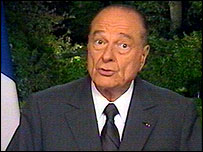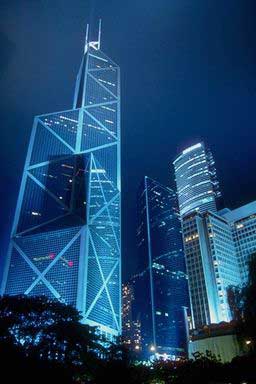Goodbye to All That
The week beginning 29th May, 2005 proved to be the most momentous in European history since the fall of the Berlin Wall in 1989. On that Sunday, the French, always seen as one of the staunchest supporters of the European Union (EU), voted ‘Non' in a referendum to reject the new EU constitution. Barely had the bemused Eurocrats in Brussels prepared their explanations for this Gallic aberration when, on the following Wednesday, the Dutch too rejected the constitution with an even more decisive ‘Nee' Although the political leaders of all the major parties in both countries had prophesied doom if further steps along the path of European integration were not taken, the populations of both countries were not convinced. After 50 years, we are undoubtedly witnessing a sea change in the way the EU is being perceived by the populations of Western Europe.
After the Second World War, a number of European politicians began to erect Europe-wide institutions in an effort to neutralise the nationalisms which they perceived had so damaged the continent in the first half of the 20 th century. In 1943, Jean Monnet, one of the main architects of the new European politics, said, “There will be no peace in Europe if the states rebuild themselves on the basis of national sovereignty, with its implications of prestige politics and economic protection ... The countries of Europe are not strong enough individually to be able to guarantee prosperity and social development for their peoples. The states of Europe must therefore form a federation or a European entity that would make them into a common economic unit.” In 1951, the European Coal and Steel Community (ECSC) was set up, with six members: Belgium, West Germany, Luxembourg, France, Italy and the Netherlands. The power to take decisions about the coal and steel industry in these countries was placed in the hands of an independent, supranational body called the ‘High Authority', with Jean Monnet as its first President.
Within a few years, these same six countries decided to go further and integrate other sectors of their economies. In 1957 they signed the Treaties of Rome, creating the European Atomic Energy Community (EURATOM) and the European Economic Community (EEC).
In 1967 the institutions of the three European communities (ESCS, EURATOM and EEC) were merged. There was now a single Commission and a single Council of Ministers as well as a European Parliament. Originally, the members of the European Parliament were chosen by national parliaments, but in 1979 the first direct elections were held, allowing the citizens of the member states to vote for the candidate of their choice. The Treaty of Maastricht (1992) introduced new forms of co-operation between the member state governments in the areas of defence, justice and home affairs. By adding inter-governmental co-operation to the existing ‘Community' system, the Maastricht Treaty also created the European Union (EU). As if this were not enough for one year, the EU also decided to prepare economic and monetary union involving the introduction of a single European currency managed by a European Central Bank. This single currency - the Euro - became a reality on 1 January 2002, when Euro notes and coins replaced national currencies in 12 of the 15 countries of the EU (Belgium, Germany, Greece, Spain, France, Ireland, Italy, Luxembourg, the Netherlands, Austria, Portugal and Finland).
Contemporaneous with the remorseless transfer of powers from national governments to the headquarters of the EU in Brussels, the European Union has being growing in size with successive waves of accessions. Denmark, Ireland and the United Kingdom joined in 1973, followed by Greece in 1981, Spain and Portugal in 1986 and Austria, Finland and Sweden in 1995. In 2004, the European Union welcomed a full list of ten new countries: Cyprus, the Czech Republic, Estonia, Hungary, Latvia, Lithuania, Malta, Poland, Slovakia and Slovenia. Bulgaria and Romania expect to follow in 2007; Croatia and Turkey have begun membership negotiations in 2005 with full expectation of success.
My potted history of the ‘European idea' clearly shows that, over the last half century, there has been a steady movement towards European integration. The end of this process is undoubtedly seen to be a federation of European states with the EU acting as a super state by virtue of its economic and military clout. The new constitution, which included the creation of an EU foreign minister and a diplomatic service, was therefore only the latest stage of a longstanding development. Critically, the rejection of the new constitution by the French and the Dutch electorate calls this 50 year old process into question.
President Chirac of France foretold dire consequences if the referendum produced a French ‘Non'. “It would open a period of divisions, of doubts, of uncertainties,” he warned in a televised address from the Elysee Palace, his last speech of a tumultuous campaign. “What a responsibility if France, a founder nation of Europe, took the risk of breaking the union of our continent.” But the French have shown that this is a responsibility they are more than willing to shoulder, that a finger wagging from the high and mighty does not faze them. They were quite willing to put up with the displeasure of Washington because they did not wish to become bogged down in an Iraqi quagmire. Bleating noises from bureaucrats in Brussels who see their expense accounts under threat only tend to frighten children of a very timorous disposition.

Chirac pleads for a 'Yes' vote
Defenders of the EU have made a desperate attempt to maintain that this was not really a vote against the new constitution. In France, their scapegoats were Chirac and what is amusingly called ‘Anglo-Saxon economic liberalism'. Let us leave Chirac aside for the moment – not easy when the word is that if he were not President he would be facing a stiff jail sentence for corruption. What of the charge that the referendum represented a reaction to globalism and market economics? This is the dream of the ‘class of 68' the unreconstructed leftists who, like the Bourbons, ‘have learned nothing, and have forgotten nothing.' On this view the EU constitution should have offered more protection from foreign trade, financial competition, immigration and, above all, American culture. But this is a pipedream for at least two reasons. It would not be acceptable to the general French population whose appetite for foreign goods and American culture is often underestimated (the top ten movies in France are generally from Hollywood). Sad to say, the French Leftist phantasy of a protectionist anti-American Europe would also be unacceptable to Britain, Holland, Scandinavia, Germany and the new EU members from Eastern Europe who see the U.S. as a military guarantor against Russia.

But Le Pen votes 'No'
Three years ago the Dutch took an eccentric politician, Pym Fortuyn, to their hearts. A homosexual, anti-establishment, anti-immigrant, nationalist politician, he articulated the mood across much of Western Europe. The Dutch have always prided themselves on being tolerant, but when a Dutch film director has his throat cut on the main street for making a film critical of Islam, many Dutch clearly cried ‘Enough!' There is, in Continental Europe, an open hostility to non-European immigrants which would be counted racist in the U.K,. let alone the U.S. Tell the Dutch that their social policy is to be decided by the votes of 70 million Turks and they will give an even bigger ‘Nee' Maastricht, where in 1992 a major step towards a Federal Europe was made, even voted No. And it's not a phenomenon governing just the old. A poll of Dutch high school pupils showed 70 per cent to be in the No camp.
Add the fact that a certain amount of fear-mongering coming from the ‘Yes' camp backfired heavily. In a television campaign, the ‘Yes' campaign tried to invoke the specters of the Holocaust and Srebrenica in order to spook the Dutch people into voting ‘Ja'. The Dutch were much more impressed by the ‘Nee' camp which printed fake 180 Euro notes to represent the amount each Dutch person had to pay in a year towards the central EU budget .

The Dutch 'No' camp celebrate
Whichever way you slice it, the fact is that the vote against the constitution came from two countries always supposed to be at the heart of the European integration process. Remember, France and Holland were two of the original founder members of the ECSC in 1951. What has gone wrong?
The single European market and the merging of foreign trade policies did initially create prosperity in Western Europe, but each subsequent stage of European economic and political integration has failed to deliver. In the background has always been a Brussels bureaucracy spewing forth an endless stream of red tape and directives, covering such important matters as the correct size of sausages and how a shopkeeper might advertise his goods. Ever present has been the Common Agricultural Policy which subsides European farmers and prevents European consumers from buying food where it would be cheapest in the world. But if I had to single out one issue which has brought the EU to its knees over the last few years, it would be the Euro. The introduction of the single currency has paralleled stagnation and mass unemployment in certain countries in the EU. Two of the major sufferers, Germany and Italy, immediately saw the referendum results as an opportunity to trawl the possibility of leaving the Euro bloc. The German Finance Minister, Wolfgang Clements, claimed that currency union was stifling Germany's already stagnant economy, and that eurozone interest rates did not reflect German needs. The Italian Welfare Minister, Roberto Maroni called for a referendum to decide whether Italy should revert back to the Lira. Milton Friedman's forecast about the likely duration of the single currency experiment becomes more probable by the day.

China reaches for the skies
What of the view from the other side of the English Channel? The aftermath of the EU referenda saw yet another EU conference to decide the level of subsidies to European farmers, yet another clash between British and French leaders over who pays what into the EU. The simple truth is that the EU has become a huge and expensive distraction for Britain and other forward-looking European countries. India and China are emerging as the new superpowers of the 21 st century, set to race past Europe in an era of unprecedented economic, demographic and geopolitical change. Any British Prime Minister worth his salt should be devoting time to forging closer economic and cultural ties with Asia, not endlessly arguing the level of handouts to this or that farming group. With the economies of China and India overtaking that of the US during the next 50 years, the obsession of the British political establishment with European integration (most clearly articulated on the BBC, the British state-controlled broadcasting channel,) seems hugely irrelevant.
Whilst the populations of America, China and India are expected to grow over the next few decades, the population of Europe will fall by some ten per cent. It might be expected that for historical reasons, the UK would be well placed to gain from the rise of Asia. In 1997, Britain handed over Hong Kong to China, but that vibrant city-state should still be a tremendous asset to the UK, giving British companies extensive contacts in expanding Chinese markets. Hong Kong's trading contacts with the UK remain intact, British financial institutions have a strong presence there and Hong Kong's British-style legal system is easy for UK companies to understand. Why more is not made of these opportunities would be a mystery if the establishment's love affair with the EU were not everywhere to see.

Mumbai, the expanding commercial centre of India
The future for the UK in the 21 st century cannot possibly lie in ever greater integration with a continent which seems to be in economic, demographic and cultural decline. Nor should it be as the military ally of the US which presently seems intent on wasting its massive political and economic advantages in an expensive and futile attempt to police the world. Instead the UK should strive to be an international trading centre and a crossroads to the world. This would require a reorientation of British foreign policy towards Asia and Latin America, complete free trade and further liberalisation of the British economy, with especial emphasis on health and education. The world is at the dawn of the greatest global economic boom in human history. If the UK is fully to benefit, escape from the present European morass is essential. I hope and trust that the French and Dutch referenda are important steps along the road to the much desired British disengagement from the EU.
![]()

Top 50 books of all time : by Old Hickory:-
"I have limited the selection to the books I have read. I keep to the norm of not recommending to others books I have yet to read. Clearly, books I have not read by now suggests a judgement of some sort."
Further reading:
PDF version
of this page
![]()
gtat.pdf
Download
Requires Adobe
Acrobat Reader. This is
available
for free at
www.adobe.com
and on many free CDs.

The Alternative
Bookshop
Which specialises in,
but does not limit itself
to, books on Liberty
and Freedom ... Book
reviews, links,
bestsellers, rareties,
second— hand,
best price on books,
find rare books.

Laissez Faire
Books
The World's Largest
Selection of Books on
Liberty
|
|
|
|
|